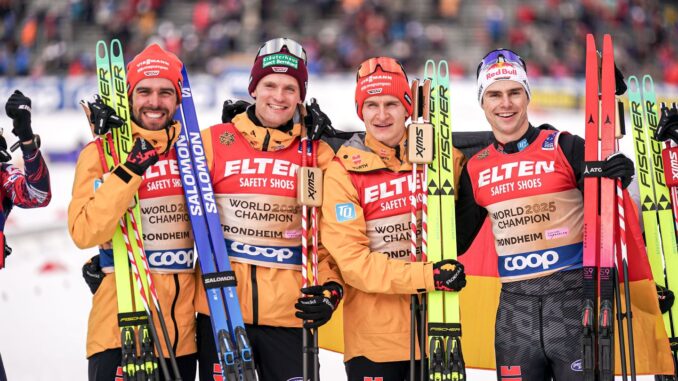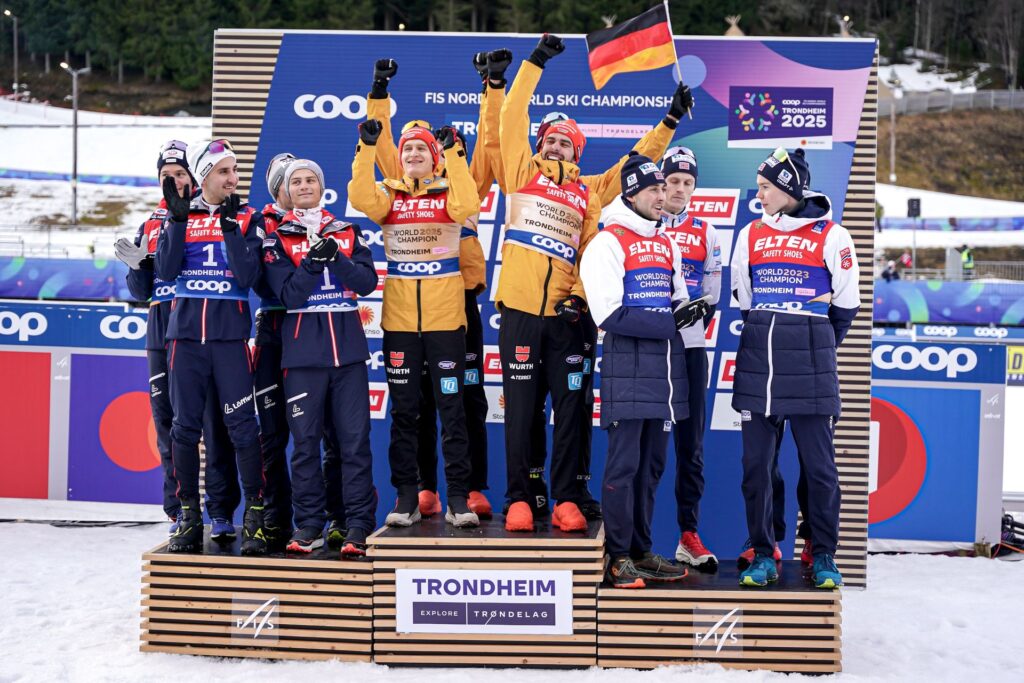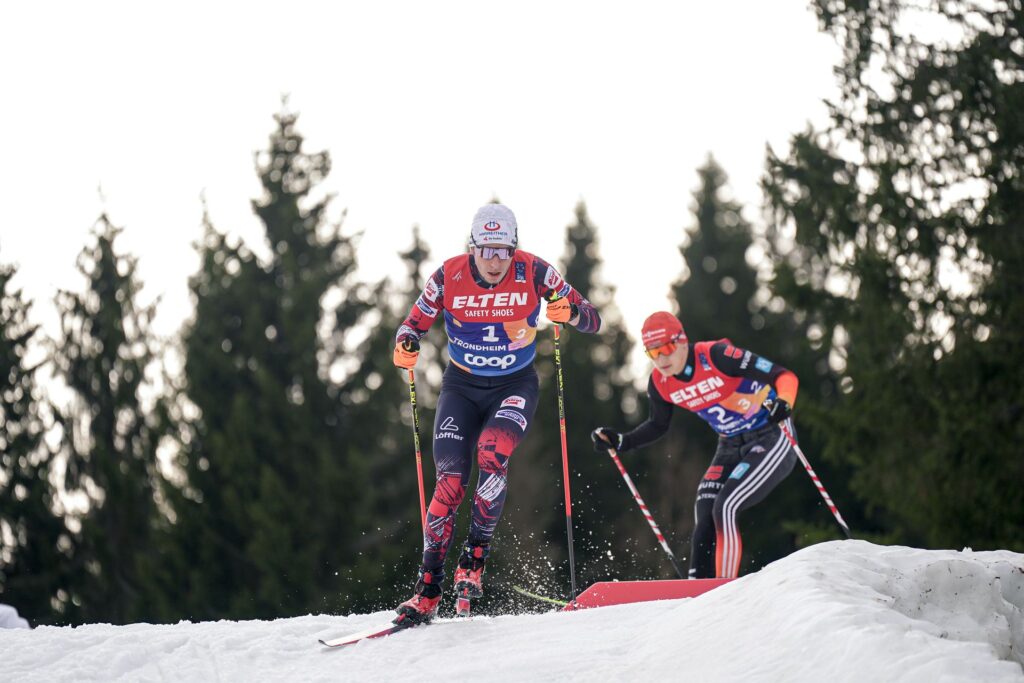
Germany claimed their first Nordic Combined Men’s Team World Championship gold since 2017, ending Norway’s dominance after a dramatic competition in Trondheim. The hosts, who had won three consecutive world titles, were on track for another victory, leading by 20 seconds after the ski jumping portion. However, a disqualification for Joergen Graabak due to an irregular binding cut 122.3 points from their total, pushing them 1 minute and 40 seconds behind Austria and Germany for the cross-country relay.
Despite Norway’s strength on the tracks, the deficit proved insurmountable, turning the race into a two-way battle between Germany and Austria. The lead changed multiple times across the four legs, but in the final 5km stretch, Vinzenz Geiger pulled away from Austria’s Fabio Obermeyr to secure gold for Germany. His teammates Julian Schmid, Johannes Rydzek, and Wendelin Thannheimer who was making his championship debut, also celebrated their first world title.
Austria’s quartet of Johannes Lamparter, Martin Fritz, Franz-Josef Rehrl, and Obermeyr finished just 6.6 seconds behind to take silver. Norway’s team, featuring Simen Tiller, Graabak, Jens Luraas Oftebro, and Jarl Magnus Riiber, managed to claim bronze, finishing 1:39.8 behind Germany after overcoming Finland in the final stretch.
For Riiber, this marked his 14th World Championship medal and first bronze, while Rydzek added a seventh world title to his own tally. Geiger, reflecting on the race, admitted it was tougher than expected but remained confident in his sprint ability, which proved decisive in the final kilometer.
Austria and Germany’s Tight Duel
Austria started strong by placing Lamparter, their fastest skier, on the first leg, but he only managed to shake off Rydzek in the final kilometer, securing a 12.9-second lead. Rehrl maintained Austria’s advantage on the second leg, despite a strong effort from Thannheimer to close the gap.
Meanwhile, Finland’s Ilkka Herola caught up with Japan’s Akito Watabe, pushing the Finns into third at the halfway mark. Norway, still recovering from their penalty, remained 25 seconds off a podium spot.
Germany’s Schmid cut Austria’s lead in half within the first 800m of the third leg, overtaking Fritz in the second loop and handing Geiger a 6.6-second advantage for the final stretch. Though Obermeyr quickly caught Geiger and briefly took the lead, the German’s superior endurance on the final uphill section secured victory.
Further back, Oftebro pushed Norway past Japan but couldn’t catch Finland’s Eero Hirvonen, who handed over to Otto Niittykoski with a 15-second advantage in the fight for bronze. Riiber, on Norway’s final leg, overtook Niittykoski and pulled away in the second loop, securing third place and extending Finland’s medal drought in the event, which dates back to their 2007 gold.
With gold out of reach, Riiber conserved energy for the upcoming individual Gundersen event, his last major competition before retiring. Reflecting on the day, he admitted the disqualification was tough to accept but was satisfied with securing bronze.
Standout Performances on the Hill
In the ski jumping portion, Japan’s veteran Akito Watabe impressed with a 130.0m jump, earning 125.6 points. However, Norway’s Tiller produced the longest jump of the round at 136.0m for 138.2 points, giving his team an early lead. Rydzek’s 131.0m jump placed Germany second, while Obermeyr’s 125.0m effort left Austria in fourth.
Austria climbed to second after Rehrl’s 139.5m jump the longest of the day while Norway extended their lead to 10.1 points after Oftebro’s solid 132.5m attempt. By the final round, Lamparter’s 130.0m jump secured Austria’s lead over Germany, while Riiber’s 134.5m effort boosted Norway’s advantage to 20 seconds heading into the relay.
However, Graabak’s disqualification drastically altered the race, forcing Norway to shift focus to securing bronze. They will now look to finish the championships on a high note in Saturday’s individual event.





Be the first to comment